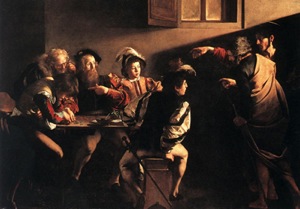
 HAD TO CHUCKLE when I recently saw this post on the CNNMoney website: “Stressful Jobs that pay badly.” Number five on the list was “Music ministry director.” That anyone is paying attention to the profession is surprising, and it is a dubious honor to make the list!
HAD TO CHUCKLE when I recently saw this post on the CNNMoney website: “Stressful Jobs that pay badly.” Number five on the list was “Music ministry director.” That anyone is paying attention to the profession is surprising, and it is a dubious honor to make the list!
There is no need to fully recount here how and why such work can be stressful. Music touches everyone, so everyone has a stake in it. Music can often be a source of tension in a parish and therefore we are called not only to be skilled musicians, but decent people with big hearts. We must be articulate and skillfully restore and foster sacred music, yet navigate the waters of human nature and fear of the unfamiliar and fear of change.
Furthermore, stress can stem from an uncertain job market, the changing tides of fashion, or changes in pastor assignments. Healthy or dysfunctional work environments directly affect employee morale and productivity in churches no differently than in the corporate world.
Yet, music ministry is one the most rewarding professions too. I suppose this is why so many of us stick with it for a lifetime. Once in a while, we may get a letter or note from someone that may change our outlook completely. Often, a note of thanks or praise is not because the music was just “beautiful” but because it touched their spirit. It touched their life in a way that shaped and formed them.
When this happens, I am reminded of a verse from the Spiritual There is a Balm in Gilead:
Sometimes I feel discouraged
And think my work’s in vain, But then the Holy Spirit
Revives my soul again.”
IN THIS, I AM ALSO REMINDED of how the musicians I work with touch my life. I may be the director, but I am shaped and formed in my spirit from the amazing people I get to guide and teach. Like the Holy Spirit, they revive my soul again. For this I am truly grateful.
Finally, our jobs can be stressful, because it is a pragmatic mix of making a living and caring for family—yet at the same time it is a calling, a true vocation. We must discern what our calling is in how we may be of service to God.
In trying to discern our calling, I think of an ignored and overlooked section of Pope Francis’ recent interview with Father Antonio Spadaro, S. J. where he speaks of ‘The Calling of St. Matthew,’ by Caravaggio.”
“That finger of Jesus, pointing at Matthew. That’s me. I feel like him. Like Matthew.” Here the pope becomes determined, as if he had finally found the image he was looking for: “It is the gesture of Matthew that strikes me: he holds on to his money as if to say, ‘No, not me! No, this money is mine.’ Here, this is me, a sinner on whom the Lord has turned his gaze. And this is what I said when they asked me if I would accept my election as pontiff.” Then the pope whispers in Latin: “I am a sinner, but I trust in the infinite mercy and patience of our Lord Jesus Christ, and I accept in a spirit of penance.”

